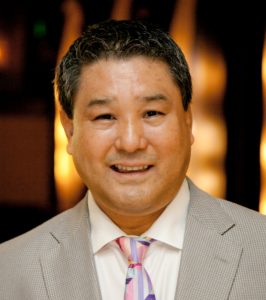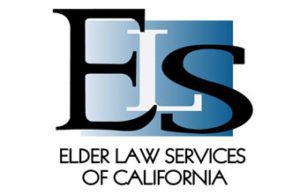Do You Qualify for Up To 90% Off Probate Services?
Request Your FREE Consultation with an Expert Estate Planning Attorney.*
Call (800) 403-6078
- Expert Probate Assistance
- Save on Legal Fees
- Comprehensive Estate Planning
- Win-Win Solutions
- Trusted Guidance
Save Big on Probate Services & Legal Fees
Elder Law Services Has Been Helping Families Preserve Wealth And Leave A Legacy For Future Generations Since 1995
Don’t miss out on the opportunity to get expert probate assistance at a fraction of the cost. Take advantage of our real estate and legal expertise combined for a win-win situation. Secure your legacy and protect your family’s future with
Elder Law Services of California.
This site is protected by reCAPTCHA and the Google Privacy Policy and Terms of Service apply.

Judd Matsunaga
A Trusted Estate Planning Attorney and Real Estate Broker in Los Angeles, CA
Judd Matsunaga is a trusted, Estate Planning Attorney in Los Angeles, CA, who has helped thousands of families with Wills, Trusts, Probate, and Medi-Cal Planning for Long-Term Care. Mr. Matsunaga is also a Real Estate Broker with over 40 years of commercial, residential and development experience, mostly in Southern California and Kahala, Hawaii.
Mr. Matsunaga started his real estate career in 1979 selling apartment buildings in LA and Orange County before graduating from UCLA in 1980. A few years later, Mr. Matsunaga started to broker commercial buildings in Mid-Wilshire area. In the mid-80s, Mr. Matsunaga was developing single family homes in the Kahala area of Oahu, Hawaii.
Although Mr. Matsunaga was noted in Baron’s Who’s Who in American Real Estate in 1983, Mr. Matsunaga sent back to law school and became an attorney in 1995. After 1 year in litigation, Mr. Matsunaga found his niche in estate planning, and started Elder Law Services of California, APC in 1997. “I’m very proud to say that we have protected thousands of families from Probate Court with Revocable Living Trusts and have a 99.99% success rate in qualifying our clients for Medi-Cal benefits while preserving assets and protecting the family home.”
What makes Judd’s expertise so unique in buying or selling real estate is his knowledge of legal and tax matters. “Over the past four decades, I’ve seen Seller markets, Buyer Markets, historically high and low interest rates. Every now and then there’s an problem with a sale after escrow is opened. Think about it – Real Estate agent vs. Real Estate Broker who is also an attorney? Attorney wins every time.”
Over the years, several families who have inherited parent’s home have wanted to sell the home to divide the sale proceeds. Since they have to sell through a real estate office anyways, Mr. Matsunaga offers his real estate services while discounting (or waiving) legal fees saving his clients thousands of dollars. IT’S A WIN-WIN SITUATION!!!
Mr. Matsunaga is a member of the State Bar of California, the Los Angeles County Bar Association, the National Academy of Elder Law Attorneys, California Advocates for Long-Term Care (CANHR), California Association of Realtors, Beverly Hills Greater Los Angeles Board or Realtors, National Notary Association, Southern California Golf Association, National Eagle Scout Association, and the Better Business Bureau.
Call Judd Matsunaga today at (800) 403-6078 to discuss your probate, estate planning or real estate needs and experience the advantage of having a seasoned attorney and broker by your side. Your success is his top priority.
Common Probate Questions in California
Q: Why is California probate so expensive?
A: In the state of California, probate can be an expensive process, and there are specific reasons for this. Primarily, the costs associated with probate stem from attorney fees and executor fees.
These fees and their structure are set by statute, which means they cannot be negotiated. They are typically calculated as a percentage of the total value of the assets involved in the probate process, without considering any associated debts. For instance, if a property worth $1,000,000 goes through probate, regardless of a significant mortgage of, let’s say, $500,000 or $600,000, the attorney and executor fees will be based on the gross value of $1,000,000. In this scenario, attorney fees amount to approximately $24,000, and executor fees also amount to about $24,000. As a result, a single asset could incur nearly $50,000 in fees.
In addition to attorney and executor fees, there are other costs to consider during probate. Court filing fees are charged each time a document is submitted to the probate court. This includes a significant filing fee at the beginning of the process, and sometimes additional fees during the proceedings, resulting in an approximate total of $1,500 to $2,000.
Appraising the assets and hiring an accountant to manage estate taxes also adds to the expenses. In some cases, investigators may be required to locate beneficiaries or heirs, further contributing to the overall cost of probate.
Given the accumulating costs, many individuals are turning to trusts as an alternative to having just a will as their main estate planning document. A properly funded and well-drafted living trust can entirely avoid probate upon one’s passing, offering a much more cost-effective option.
If you have questions about probate costs or any other estate planning topic, we recommend reaching out to an experienced estate planning attorney in your area. Elder Law Services of California has over 10 offices throughout Southern California. Their expertise will provide you with clarity and guidance in managing your estate efficiently.
Q: What is the average cost of probate in California?
A: In California, probate fees are governed by statutory guidelines based on the gross value of the estate. The fee structure is as follows:
- 4% on the first $100,000
- 3% on the next $100,000
- 2% on the next $800,000
- 1% on the next $9,000,000
- 0.5% on the next $15,000,000
For estates valued above $25 million, a reasonable compensation amount will be determined by the court.
It is essential to understand that only eligible assets are taken into account for probate fee purposes in California, and not the debts of the estate.
In addition to statutory probate fees, there are other associated costs that can quickly add up, such as Probate referee fees and court administration fees.
In certain exceptional cases where an attorney provides extraordinary services to an estate beyond the norm, they may be entitled to additional compensation as approved by a judge following a hearing.
Most estates in California will go through some form of probate, resulting in these various types of associated costs. However, proactive planning can help avoid this process altogether.
Elder Law Services of California is available to help you and your family engage in proper estate planning. Attorney Judd Matsunaga can help you to create a well-structured strategy that minimizes or even eliminates probate expenses and preserves your assets for your loved ones. Only an experienced estate planning attorney like Judd Matsunaga can guide you through the process, ensuring that your estate is managed efficiently and cost-effectively. Don’t hesitate, call (800) 403-6078 to seek professional advice on safeguarding your legacy for the future.
Q: How long does probate take in Los Angeles County?
A: The probate process, much like many court proceedings, can be time-consuming, and Los Angeles, CA, is no exception. Typically, probate in this region takes over a year, with a realistic timeframe ranging from 18 to 22 months. For larger estates or when multiple heirs contest various aspects of the inheritance, the process can take even longer.
Even for an average-sized inheritance, obtaining a hearing may take around 8 to 10 weeks. After the hearing, processing paperwork can extend for a few more weeks. Additionally, creditors are allowed up to 4 months to make claims before the probate is officially accepted, further extending the timeline.
Factors Influencing Probate Duration
The duration of each probate case varies depending on the complexity and the number of individuals involved in the process. While most probate cases in California conclude within 18 to 22 months, some may take as little as nine months. If the will is contested or deemed inauthentic, the process will inevitably take longer. The involvement of multiple beneficiaries can also lead to extended timelines, as attorneys need to carefully navigate the distribution of assets.
Paperwork management during probate can be intricate and time-consuming, with the need for original signatures rather than electronic versions further contributing to delays. Disputes among beneficiaries regarding estate distribution can further complicate matters, resulting in longer processing times. In such cases, some beneficiaries may enlist their own attorneys to advocate for their interests in the inheritance.
Challenges and Ways to Expedite Probate
During probate, challenges to the authenticity of the will may arise, alleging that it does not meet legal requirements or that the deceased was not of sound mental state during its creation. Such contested wills can significantly prolong the process, sometimes based on claims of fraudulence.
Strategies to Streamline Probate
While the probate process can indeed be lengthy, certain approaches can help expedite the proceedings:
Engaging Experienced Legal Professionals:
When dealing with substantial assets, such as inheritances, it’s crucial to enlist the expertise of seasoned professionals. This includes hiring an experienced probate attorney and a probate real estate agent. A well-equipped team of specialists will possess the know-how to navigate the entire process efficiently and approach each step strategically. For instance, a reputable probate real estate specialist like Judd Matsunaga in Los Angeles understands the optimal timing for property sales, making a significant difference in the smooth progression of your probate process.
Navigating the probate process can be complex, but with the right team of professionals, you can streamline the journey and ensure a more efficient and satisfactory outcome.
Probate expenses can add up significantly, making it imperative to maximize the value of any inherited property. For this reason, it is vital to seek out the expertise of the best probate realtor. A seasoned probate real estate specialist like Judd Matsunaga possesses a deep understanding of the probate process and will facilitate maximizing your property’s value with ease.
Numerous real estate laws and procedures specific to probate make it essential to choose a probate realtor in Los Angeles over a regular realtor. By entrusting your probate real estate needs to Elder Law Services of California, you gain a competitive edge and a seamless experience throughout the process.
If you’re seeking an exceptional probate realtor in Los Angeles, look no further. Reach out today to schedule a free consultation by calling (800) 403-6078 so we can show you how you can capitalize on Judd’s expertise and ensure the best possible outcome for your probate property.
Q: Do I need a lawyer for probate in California?
A: Yes… please allow us to explain why.
Probating a decedent’s estate typically involves the following steps:
Step 1: Petition for Probate
In most cases, the individual seeking appointment as the personal representative (executor or administrator) engages an experienced probate lawyer to draft and file a Petition for Probate. Alternatively, some petitioners may choose to handle the probate without legal representation.
Step 2: Notice and Publication
The probate lawyer or the unrepresented petitioner arranges to send notices to all individuals named in the decedent’s Will (if applicable) and notifies all legal heirs about the death and the upcoming probate hearing. To inform creditors about the proceedings, a notice must also be published in the newspaper circulated in the decedent’s last residence. This notice provides an opportunity for anyone notified to object to the Will’s validity and the appointment of the personal representative.
Step 3: Probate Hearing
The probate hearing is typically scheduled several weeks after the initial filing. During this hearing, the court assesses the Will’s validity and appoints the personal representative. In some cases, the court may require witnesses who observed the decedent’s Will signing to provide declarations. If there are no objections, the court approves the petition and appoints the personal representative.
Step 4: Asset Identification and Management
The personal representative assumes the responsibility of identifying, taking possession of, and managing the probate assets until all debts are settled and tax returns are filed. This process usually spans approximately one year. Depending on the terms of the Will (if there is one) and the extent of the decedent’s debts, the personal representative may need to sell real estate, securities, or other assets.
For instance, if the Will specifies cash gifts but the estate primarily comprises valuable artwork, the art may need appraisal and sale to generate cash. Similarly, if there are outstanding debts, the personal representative may need to sell some estate property to settle these obligations.
Step 5: Filing a Report with the Court
After settling debts and taxes, the personal representative must submit a report to the court, accounting for all income received and payments made on behalf of the estate. Upon review and approval, the judge authorizes the personal representative to distribute the remaining property among the beneficiaries or organizations specified in the Will.
Step 6: Property Transfer
Once authorized, the personal representative oversees the smooth transfer of the estate’s remaining property to its new rightful owners as designated in the Will.
Navigating the probate process can be intricate, but with the guidance of an experienced probate attorney like Judd Matsunaga, you can ensure a seamless and efficient administration of the estate.

Estate Planning to Protect the Family
Elder Law Services of California assists families in preserving wealth for future generations.
If you are interested in learning more about how Estate Planning is used to protect assets, then contact Elder Law Services of California today to schedule a free consultation with an experienced Estate Planning Law Attorney.
Call For Your
Free Consultation*
Call Elder Law Services of California today at
(800) 403-6078
to schedule a FREE Consultation
with one of our expert lawyers.
* Please Note: Limit of 1 free consultation per individual/family.
Estate Planning & Probate Services
Elder Law Services of California helps families residing in:
- Los Angeles County
- Orange County
- Riverside County
- San Bernardino County
- San Diego County
- Santa Barbara County
- Ventura County
